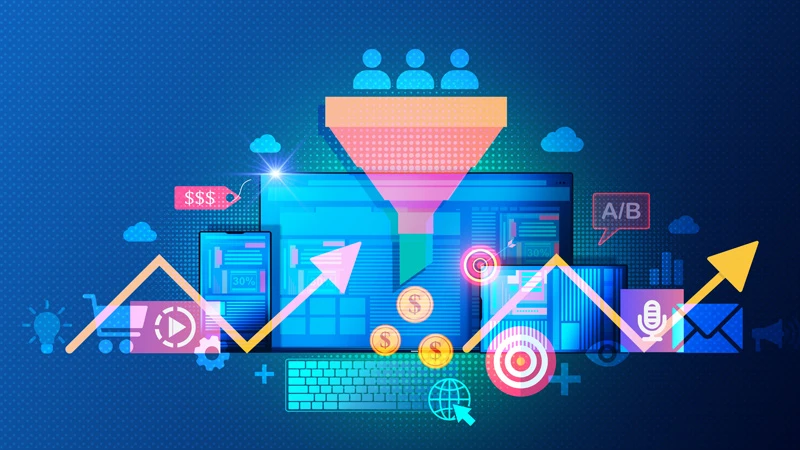Transform Your Business: Just How AI Automation Is Transforming B2B Operations
AI automation is improving B2B operations in substantial ways. Firms are adopting this technology to enhance workflows and boost efficiency. As jobs become automated, organizations can concentrate on tactical development as opposed to mundane processes. The effects of these adjustments are profound, affecting whatever from consumer interactions to provide chain management. Recognizing this change is important, as the future of organization depend upon the efficient integration of AI into day-to-day operations. What lies in advance in this developing landscape?
Recognizing AI Automation in B2B Context
As companies significantly look for effectiveness, recognizing AI automation within the B2B context ends up being vital. AI automation describes the application of expert system innovations to enhance and improve organization procedures. In B2B settings, this can show up in different kinds, such as automating data access, enhancing supply chain logistics, or boosting inventory monitoring. Organizations leveraging AI automation can minimize operational prices, reduce human error, and increase efficiency. Moreover, AI devices can evaluate substantial amounts of data to supply workable insights, enabling informed decision-making. B2B Automation Consulting. The assimilation of AI into B2B procedures not just transforms standard operations but additionally fosters dexterity and scalability, allowing organizations to adjust to market changes quickly and effectively. Welcoming this technology is vital for staying competitive in today's digital landscape
Enhancing Client Experience Via AI
Exactly how can AI transform client communications in the B2B industry? AI boosts consumer experience by offering customized, prompt, and reliable solution. Smart chatbots and virtual assistants can take care of queries 24/7, guaranteeing clients get prompt feedbacks. AI Automation For B2B. Predictive analytics make it possible for businesses to anticipate client requirements, tailoring offerings appropriately. AI-driven platforms can analyze customer data, allowing for targeted marketing strategies and improved engagement. Additionally, sentiment analysis tools evaluate client comments, assisting companies adjust their solutions. By automating regular tasks, AI releases up personnels to concentrate on high-value communications, fostering stronger relationships. The assimilation of AI not just simplifies interaction yet additionally develops trust and commitment, inevitably raising the total consumer experience in the affordable B2B landscape

Streamlining Supply Chain Management With AI
AI plays an essential duty in optimizing supply chain monitoring with predictive analytics and automated inventory control. By leveraging anticipating analytics, services can prepare for need variations and readjust their operations accordingly. Automated supply systems additionally enhance efficiency by making certain stock degrees are preserved, decreasing waste and boosting general productivity.
Anticipating Analytics Benefits
While many companies face difficulties in managing complex supply chains, predictive analytics uses a transformative service by leveraging large amounts of information to anticipate fads and enhance operations. By analyzing historic information alongside real-time inputs, anticipating analytics enables firms to determine patterns and anticipate future needs. This insight enables even more informed decision-making, improving effectiveness and decreasing prices. On top of that, services can proactively address prospective disturbances by predicting supply chain traffic jams and changing methods accordingly. The assimilation of predictive analytics not just improves supply management however also cultivates stronger connections with suppliers and clients via prompt reactions to market shifts. Inevitably, the adoption of predictive analytics equips organizations to stay competitive in a progressively vibrant business atmosphere.
Automated Stock Control
As businesses progressively count on anticipating analytics to maximize supply chain procedures, automated supply control becomes an effective ally in this initiative. By leveraging AI-driven modern technologies, companies can enhance accuracy in stock monitoring, decrease stockouts, and lessen excess supply. Automated systems assess real-time data, permitting organizations to predict need variations and readjust supply degrees accordingly. This not only simplifies order fulfillment but also enhances money flow administration by minimizing holding expenses. Additionally, AI can identify patterns in acquiring actions, making it possible for even more informed decision-making relating to provider relationships and procurement strategies. Ultimately, automated supply control not just increases operational performance yet additionally boosts customer contentment by ensuring item schedule, solidifying its role as an essential component in contemporary supply chain management.
Data-Driven Choice Making Powered by AI
In today's affordable landscape, organizations increasingly count on data-driven decision-making to improve functional effectiveness and calculated planning. Expert system plays a crucial function in this makeover by examining large amounts of data promptly and properly. AI formulas determine patterns, trends, and abnormalities that human experts may neglect, making it possible for services to make educated choices based on real-time understandings. This capability enables firms to anticipate market changes, enhance resource allocation, and customize their offerings to consumer demands. Furthermore, try this website AI-driven analytics promote risk assessment and management, guaranteeing that companies can browse uncertainties efficiently. By leveraging these innovative tools, companies not only boost their decision-making processes but also acquire an affordable advantage in their corresponding markets, cultivating development and advancement.
Automating Repetitive Jobs to Increase Efficiency

Incorporating AI With Existing Business Procedures
Lots of organizations deal with obstacles when integrating AI with existing organization processes. These difficulties frequently stem from an absence of understanding pertaining to just how AI can enhance existing operations. Effective assimilation calls for a comprehensive evaluation of existing operations to determine areas where AI can add value. Organizations should also guarantee that their teams are geared up with the required skills to take advantage of AI tools effectively. On top of that, smooth integration rests on the compatibility of AI innovations with legacy systems. Firms typically discover it useful to adopt a phased approach, piloting AI applications in specific divisions prior to a broader rollout. This method permits changes based on initial feedback, assuring smoother changes and making best use of the possible advantages of AI automation in improving efficiency and efficiency.
Future Fads in AI Automation for B2B Companies
As B2B firms aim to the future, boosted information analytics is established to play a crucial function in driving decision-making processes. Smart process automation will also become a crucial fad, improving and simplifying operations performance. These innovations guarantee to reshape how organizations run, eventually bring about even more agile and receptive companies.
Improved Information Analytics
While businesses significantly count on data-driven choices, the role of AI in boosting data analytics is coming to be much more essential in B2B operations. AI technologies assist in the collection and analysis of large datasets, allowing companies to discover beneficial insights that drive critical planning. Predictive analytics powered by AI permits organizations to forecast market fads and client actions with greater precision. Additionally, artificial intelligence algorithms improve information analysis, recognizing patterns that human experts may neglect. This causes even more enlightened decision-making and maximized resource appropriation - B2B Growth Consulting. As B2B business proceed to embrace AI-driven analytics, they can anticipate better operational performance, boosted client experiences, and an one-upmanship out there. The future of data analytics in B2B depends upon integrating innovative AI capacities
Intelligent Process Automation
Intelligent Process Automation (IPA) is positioned to revolutionize B2B procedures by perfectly incorporating AI technologies with typical company procedures. This innovative technique combines robot procedure automation (RPA) with sophisticated AI capacities, allowing companies to improve performance and precision. Business can automate repeated jobs, such as data access and invoice processing, permitting employees to focus on critical initiatives. IPA also leverages artificial intelligence and natural language processing, enhancing decision-making through real-time data evaluation. As organizations significantly adopt IPA, they can expect significant price reductions and enhanced client experiences. Future fads suggest a growing dependence on IPA for scalability and adaptability, placing companies to prosper in an ever-evolving industry. Embracing IPA will be crucial for preserving competitiveness in the electronic age.
Frequently Asked Inquiries
What Industries Benefit Most From AI Automation in B2B Procedures?
Manufacturing, logistics, money, and health care markets profit most from AI automation in B2B operations. These fields utilize automation to boost efficiency, decrease costs, streamline processes, and improve decision-making through predictive analytics and data-driven understandings.
Exactly How Can Small Companies Carry Out AI Automation Efficiently?
Small services can apply AI automation properly by recognizing repeated jobs, selecting appropriate devices, integrating solutions progressively, training personnel, and continually evaluating performance to optimize procedures, guaranteeing a smooth transition and optimizing effectiveness. AI Automation For B2B.
What Are the Costs Connected With AI Automation Implementation?
The prices related to AI automation application generally include software application acquisition, framework upgrades, educating personnel, ongoing upkeep, and possible appointment fees. These costs can vary considerably based upon the scale and complexity of the automation options selected.
Exactly how Do I Gauge ROI From AI Automation Initiatives?
To measure ROI from AI automation campaigns, one should evaluate price savings, performance improvements, and income development versus execution costs. Tracking vital performance indicators gradually gives useful understandings into efficiency and general return on financial investment.
What Skills Are Needed to Manage AI Automation Projects?
Effective management of AI automation projects calls for abilities in project administration, information analysis, shows, and comprehending AI technologies. In addition, strong communication, problem-solving capacities, and flexibility are important for steering the complexities of such efforts.
As companies increasingly seek efficiency, understanding AI automation within the B2B context ends up being crucial. The combination of AI into B2B procedures not just transforms traditional process but likewise promotes agility and scalability, permitting businesses to adjust to market adjustments promptly and effectively. While services increasingly count on data-driven decisions, the duty of AI in enhancing information analytics is coming to be extra necessary in B2B procedures. Intelligent Refine Automation (IPA) is poised to change B2B operations by flawlessly incorporating AI innovations with typical organization processes. Efficient administration of AI automation projects calls for skills in task monitoring, data evaluation, programming, and understanding AI modern technologies.